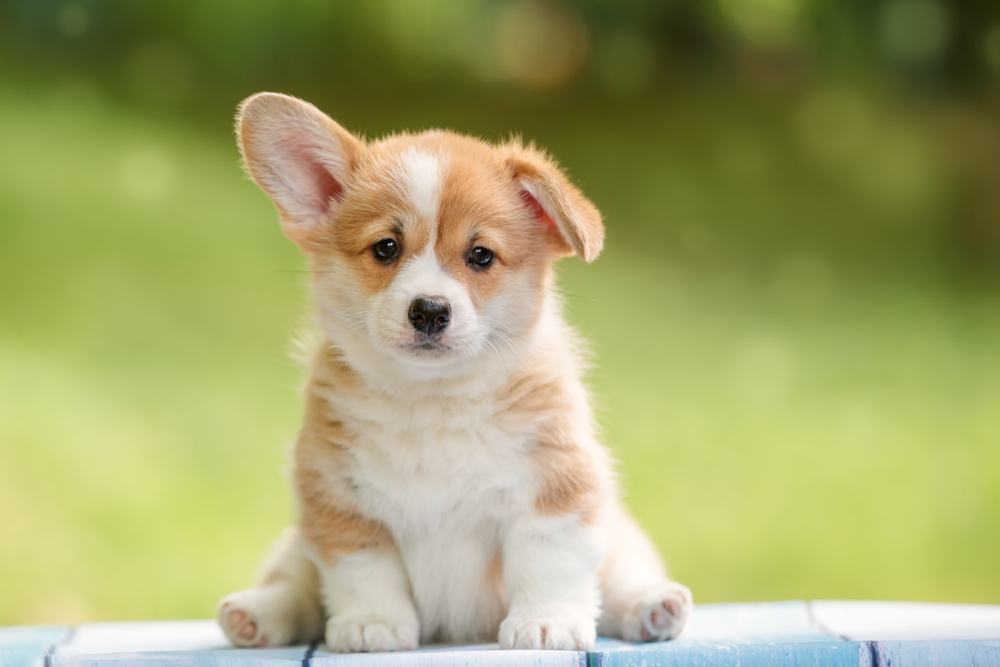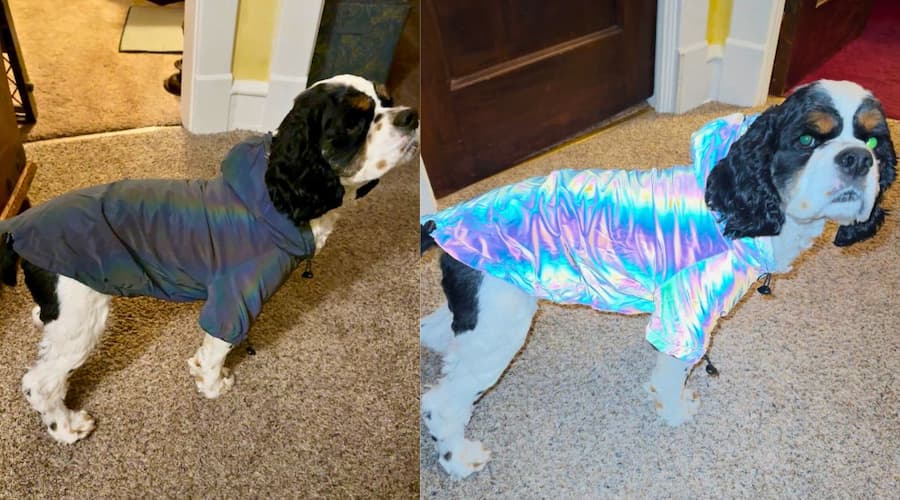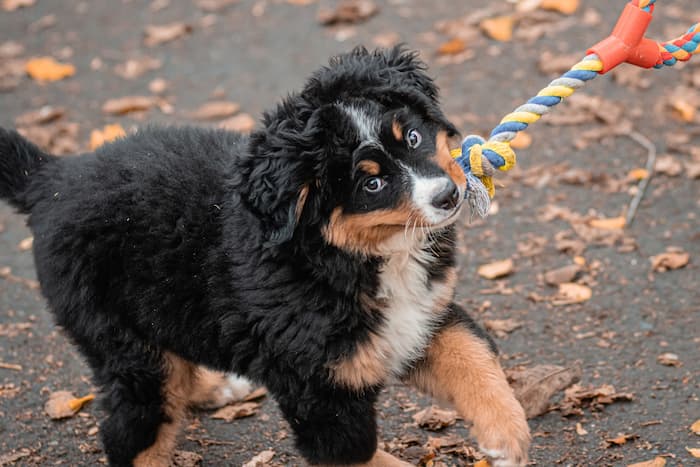Your Puppy: What to Expect at 13 to 16 Weeks
Updated on May 07, 2024

Ah, your puppy. Those big puppy-dog eyes, his soft, slobbery tongue. Let’s face it. Your new puppy is simply irresistible. These next few weeks together will be a time of joy and bonding. With a little preparation and patience, you will be able to offer your pet the best health care and help him safely explore his new world.
All featured products are chosen at the discretion of the author. However, Vetstreet may make a small affiliate commission if you click through and make a purchase.
Physical and Mental Development of Your Puppy
Your darling dog is growing fast. Your puppy’s immune system is more mature now, so once his vaccines are current and your veterinarian gives the go-ahead, he is ready to meet the public. Remember, he is still young and lacking in manners and self-control, so plan your outings carefully and always keep him on a leash. Playing with other dogs and meeting new people are important to his becoming a good canine citizen. Puppy kindergarten or puppy parties are a great way for your dog to meet others in a safe, supervised setting.

Behavior Changes of Your Puppy
Up until now, your puppy’s parents and littermates have been his primary teachers. And they offered some pretty important doggy behavior lessons. For example, when he played with his littermates, he learned important social skills, like “Hey, don’t bite too hard” and “You’re being too rough.” You’ll appreciate this schooling when you’re romping with your playful pet.
Your puppy’s social circle is widening now to include you and other playmates. During the next few months, your pup will establish his place in your pack. You should gently demonstrate your dominance as the leader. This is especially critical if you’ve chosen a larger dog or one with a dominant personality. When you establish your new puppy as a subordinate, you can take a teaching role with your dog and help him learn appropriate behaviors that will make him a better pet.
When you take your puppy out for a night walk, consider having them wear a Lunar Pooch Hoodie, which is both functional and fashionable. The waterproof, durable nylon shell is ultra-reflective from headlights while you are out walking. Motorists will visibly notice your dog in this purposeful piece of canine apparel.

If it’s rainy or cold outside, the Lunar Pooch hoodie is insulated and adjustable for the perfect fit. Even cooler is that you can order a matching Lunar Human hoodie so you and your puppy are twinning. Go from black to reflective when the lights come out. Perfect for TikTok, Instagram, and puppy’s all-important first year of life photo album.
Health and Nutrition for Your Puppy
By now, your puppy has likely received his first series of vaccinations to protect him from dangerous illnesses caused by canine distemper virus, canine parvovirus and others. Your veterinarian will provide boosters of these vaccines sometime in the next month. If you do not know your new dog’s vaccination history, you should consult your veterinarian for a complete examination and begin a series of puppy vaccinations.
Once your puppy turns 12 weeks old, consider adding Great Poop Probiotics to their daily schedule. It naturally supports their digestive tract and is available in a convenient, chewable form.
Your puppy may have begun teething and chewing. This can be a source of heartache if you don’t direct your puppy’s natural behavior to an appropriate outlet. If you’re thinking of offering up an old pair of shoes or socks as a toy, think again.
Offering these items will only encourage your pet to consider other similar items as potential toys. Don’t let your Nike trainers become your dog’s next victim. Purchase safe chew toys and offer positive encouragement when your puppy chews appropriately.
Try not to scream and yell if you catch your puppy chewing on the sofa, but rather offer an acceptable chew toy to redirect his chewing. It is a good idea to avoid mouth-focused play, such as tug of war, because it can encourage chewing, biting and pulling.
Your puppy should be fed a high-quality puppy food. Be sure to check the label to make sure that the food is appropriate for your puppy’s age, and follow the manufacturer’s feeding guidelines. You should avoid feeding your puppy people food, and be sure to stick to puppy treats or kibble as rewards.

Health Insurance for Your Puppy
Purchasing health insurance for your puppy early on can help pay for costs associated with veterinary care as your dog ages. This includes savings on spay and neuter surgery, puppy vaccinations, and veterinary wellness exams. It’s better to be prepared than to be hit with an unexpected bill!
See quotes from pet insurance companies in your area by clicking on the map below:
Puppy Training Tips
Your puppy could probably use a good dose of manners at this age, and you are the perfect person to offer the right lessons. Just remember, you can correct your puppy, but avoid physical corrections. Your dog can think you’re playing, and annoying behaviors like mouthing can quickly escalate to nipping. Frequently, ignoring an attention-getting behavior such as jumping will quickly teach your puppy that he will not get noticed with that approach.
You may think it’s cute when your puppy nips you with his needle-sharp teeth. If he did this with a littermate, the other puppy would yelp, and you should, too. This teaches him that nipping hurts and discourages the behavior. You will be surprised at his immediate concern for you if you let out an exaggerated high-pitched squeal when he nips. You should then distract him with more appropriate play.
Training should start with a few basics that will make your furry bundle of energy a little easier to live with. Try some simple commands, like sit, stay, heel and come. Practice patience and repetition. A small piece of kibble works well to reinforce desirable behaviors.
Young puppies may also benefit from socialization activities that expose them to other dogs and people. Remember, your puppy’s attention span is limited. Avoid working on teaching commands for too long. If your puppy responds correctly once or twice, you may want to leave more training for a different time.
If you haven’t done it already, you will also want to begin crate training. Your puppy’s crate should be a positive, safe place for your little one. It’s his space to sleep, his doggy den, where he can kick back and take a break when he needs a little space.
Crates are a good experience when it’s a space for your puppy to sleep or take his favorite treat. Make it safe and comfy with doggy-proofed materials. Do not use the crate for discipline or to leave your pet for longer than six hours.
You’re just beginning to learn about your new canine friend, and he is learning about you, too. Stay focused on his training and keep it positive. Your little darling is eager to please, and the time you invest in training now will pay dividends when he’s older.

